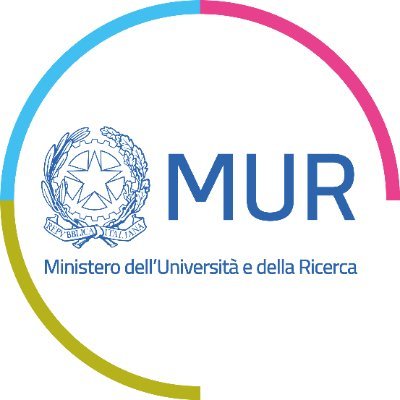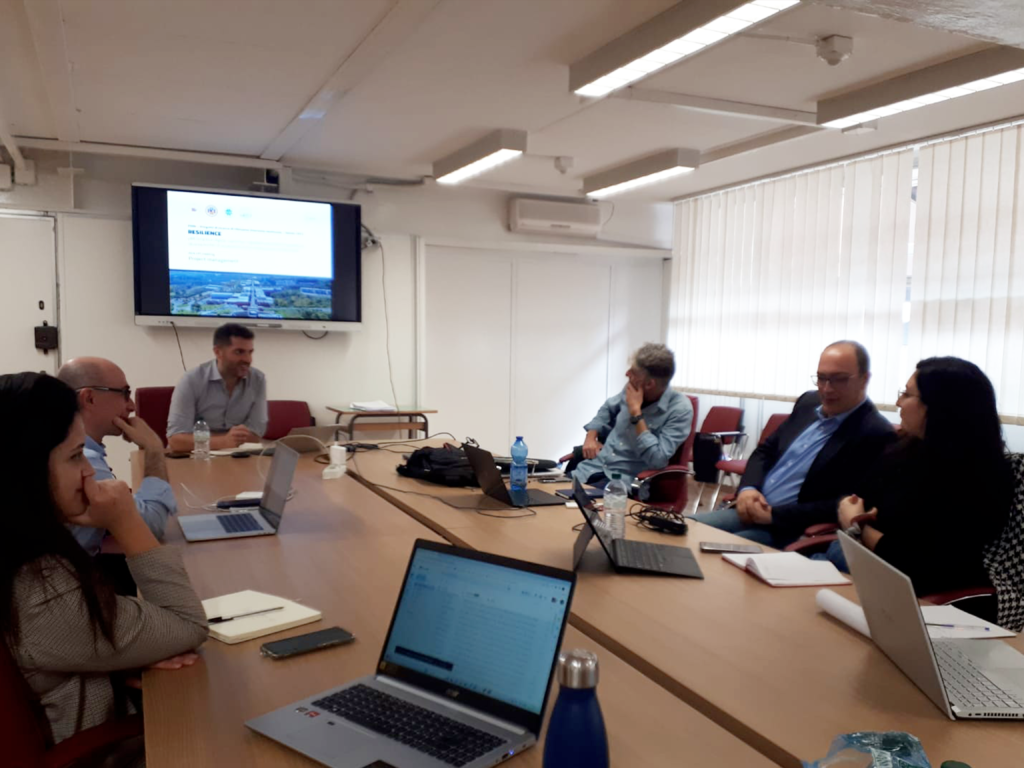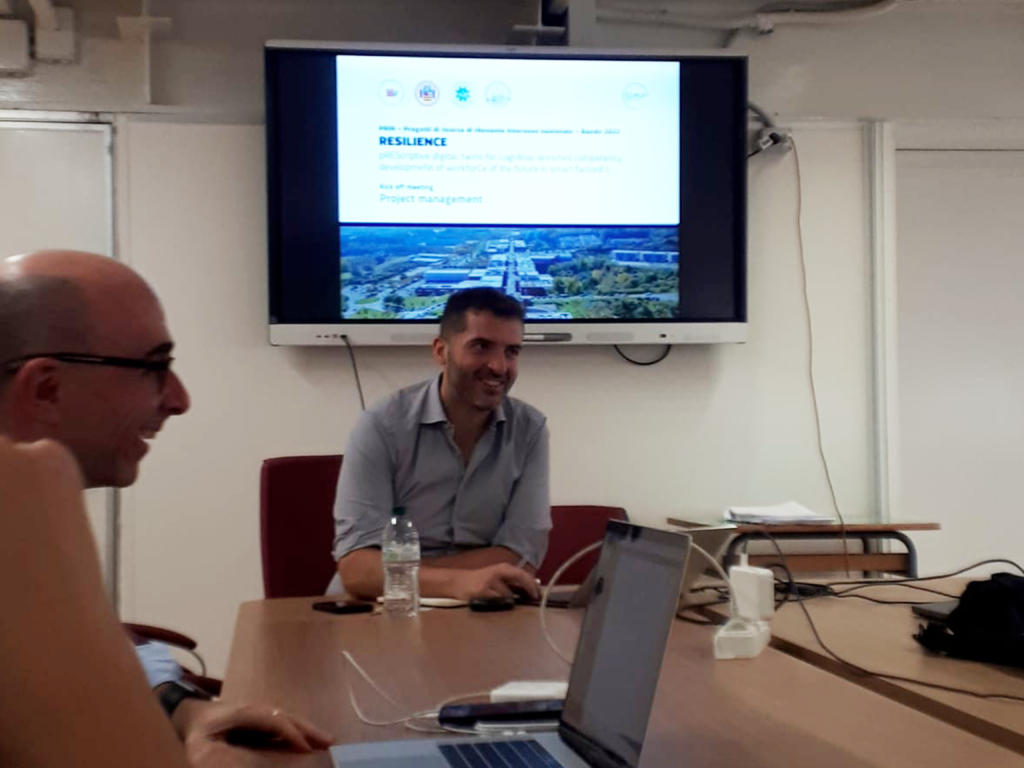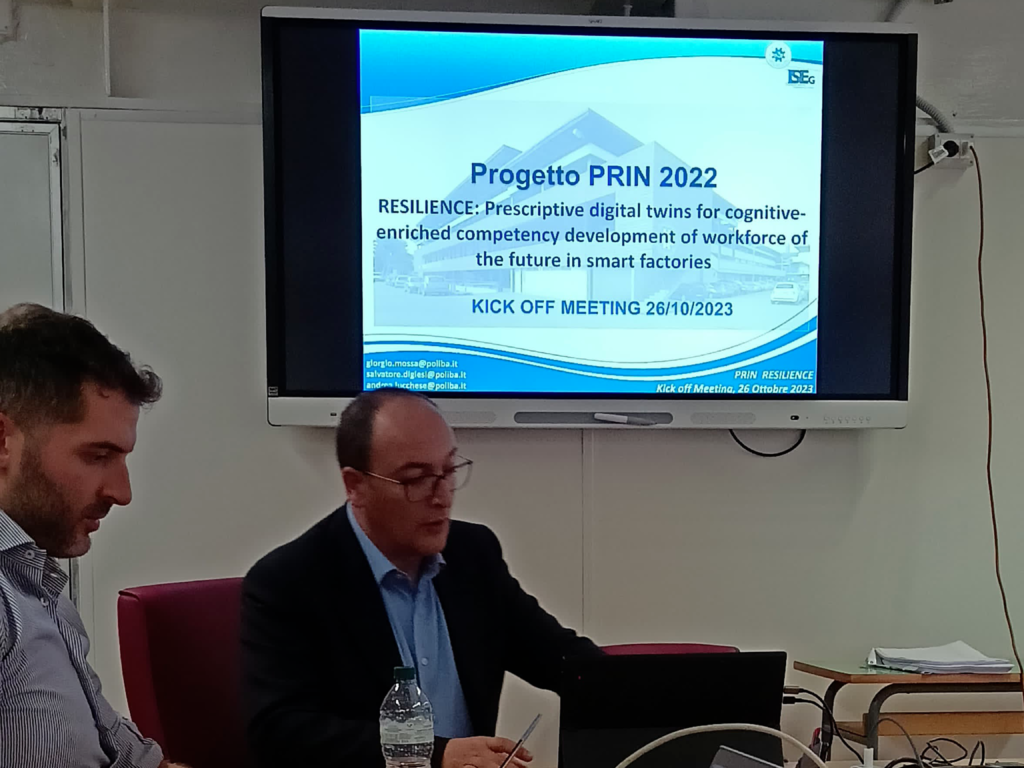October 26, 2023
DIMEG, University of Calabria
Exciting News: PRIN 2022 RESILIENCE Project Takes Off!
On October 30th and 31st, the University of Calabria hosted the kickoff meeting of the PRIN 2022 – RESILIENCE project, an exciting 24-month new research project of national interest funded by the Italian Ministry of University and Research (MUR).
RESILIENCE stands for “Prescriptive digital twins for cognitive-enriched competency development of workforce of the future in smart factories” and involves the USS Lab of the DIMEG, University of Calabria as project coordinators and other esteemed italian universities as project partners, including the University of Salerno, the University of Brescia and the Polytechnic University of Bari.
What is the RESILIENCE project about?
As manufacturers increase their efforts to infuse greater resilience in their operations, they are recognising the importance of training the workforce to keep the shop floor running, especially in times of disruption. While centrally located, long-time expert employees spend most of their time coaching less-experienced workers and workers assistance technology is getting popular in the Smart Operator literature, they do not really upskill those workers sufficiently, thus preventing manufacturing operations from performing at a consistently high level. This is even more critical nowadays as a consequence of the shift away from manual and routine work towards non-routine work. To this end, companies need an alternative solution that lessens training duration, improves skills retention, and offers situational awareness, thus sustaining a healthy and safe workforce in the perspective of human-centric cyber-physical production systems (H-CPPS). The question that motivates this project is: ‘are technologies and methods mature enough to enable a novel training strategy that prepares industrial workers for what is really coming instead of preparing them for a large set of scenarios – even very unlikely ones?’. This project entitled “pREScriptive dIgitaL twins for cognItive-enriched compEtency developmeNt of workforCe of the future in smart factoriEs” (RESILIENCE) identifies digital twin (DT) technology, prescriptive analytics (PsA), building information modelling (BIM) and a structured On-the-Job Training (OJT) strategy as the cutting-edge enablers of a novel training paradigm, called “training-on-the-go” or “prescriptive training”, according to which training is not scheduled long before the actual performance, but only when and if needed. Thanks to the integration of predictive/prescriptive methods, knowledge management and representation techniques and decision support methodologies, it is possible to recommend “what should be done” based on context-specific data collected from the shop floor. Digital training environments recreating faithfully the future operational context that workers would likely face will be generated thanks to BIM and digital twin data and models. In order to maximise the training effectiveness, a structured OJT strategy will be developed which leverages learning/forgetting curves that integrate the task complexity and worker-related factors (including their background knowledge, psycho-physical attitude, personal skills, experience with the task, experience with similar tasks, age, and gender). The RESILIENCE integrated platform will be tested in a small-scale industrial environment in order to assess its potential impacts on (a) the scientific challenges in the research areas related to the project activities, (b) workers’ well-being and professional development, (c) cost-benefits for manufacturers and technology transfer, and (d) the society as a whole, that is shifting towards a knowledge-based economy.
In the pictures, Antonio Padovano (University of Calabria), Salvatore Digiesi and Giorgio Mossa (Polytechnic University of Bari), Ivan Ferretti (University of Brescia), Valentina Di Pasquale (University of Salerno).
#PRIN2022 #RESILIENCE #HigherEducation #InnovationInTraining #DigitalTwin #Prescriptive

RESILIENCE is funded by the Italian Ministry of University and Research (MUR) under the PRIN 2022 programme – No. 2022K2SAFM (CUP H53D23001310001).




